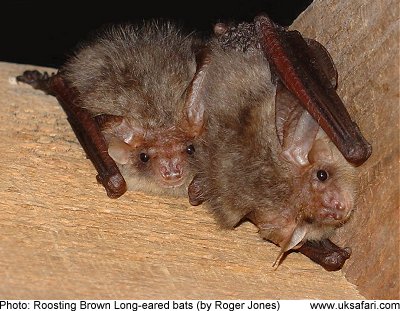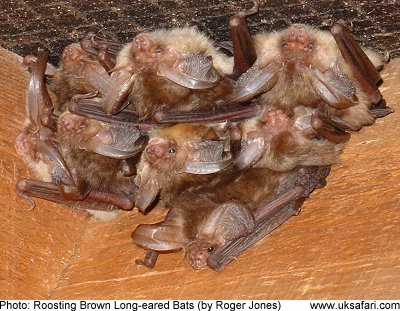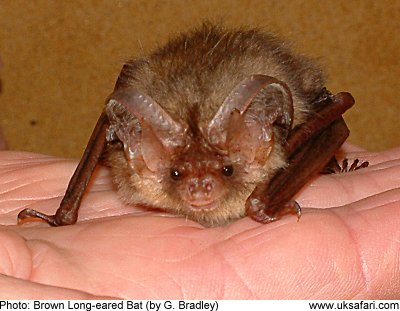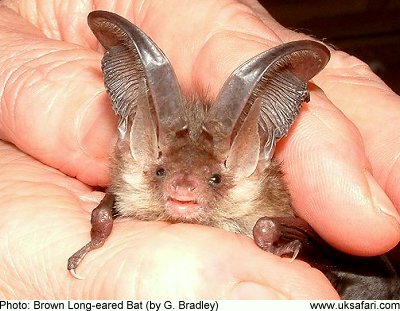 Bats
Bats
News > Bats >

All British bats feed on insects, and it's been estimated that some consume up to 3,000 midges, moths and flies in a single night. As winter draws nearer, and the temperatures drop, there are less and less insects for them to eat. This leaves bats with just three options; they can either carry on hunting here, they can fly south with the birds, or they can hibernate.

Since option one could lead to starvation, and option two involves an awful lot of effort, all our bats choose to sleep through the winter. In October they're busy checking out suitable locations, and in November they'll be hanging up their "Do Not Disturb" signs and shuffling off to bed.

Brown long-eared bats are tiny. So tiny in fact they can squeeze beneath the roof tiles of houses and into attic spaces where they sleep through the winter months. Many people have a few of these bats living in their loft space without knowing it. They're very quiet, and make virtually no mess.

Note: Handling bats in the UK requires a licence, and appropriate vaccinations. It's also recommended that gloves be worn to prevent bites/scratches. It's illegal to injure, kill, sell or exchange bats (dead or alive) in the UK. It's also illegal to damage or disrupt their roost sites. For free advice please contact the Bat Conservation Trust on 0845 1300 228.
More info at: UK Safari Bat Section

 Popular Pages
Popular Pages
Amphibians, Bats, Badgers, Beetles, Birds, Birds of Prey, Bumble Bees, Butterflies, Caterpillars, Creepy-Crawlies, Deadly Spiders, Dolphins, Dragonflies, E-Postcards, False Widow Spiders, Free Newsletter, Frogs, Fungi, Garden Spiders, Glow-Worms, Grey Squirrels, Hedgehogs, House Spiders, Ladybirds, Mammals, Marine Mammals, Moths, Owls, Reptiles, Spiders, Toads, Trees, Wildlife Hospitals
© Copyright 2017 G. Bradley - UK Safari | About Us | Links | Contributors



 Related Pages
Related Pages
